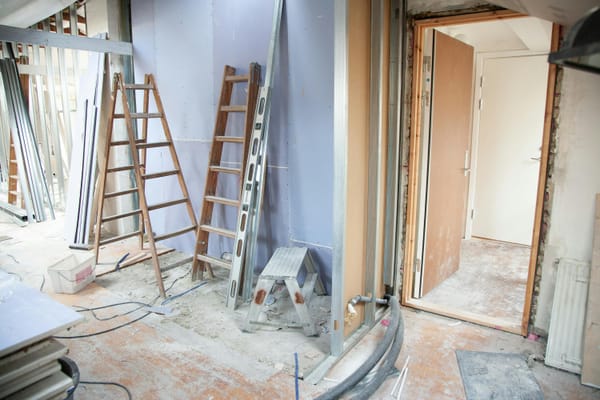Tankless vs. Traditional Water Heaters: Which Is Right for You?

Introduction
Hot water is essential for comfort and hygiene — whether you’re at home rinsing dishes or operating a small business like a hair salon, gym, or restaurant. Choosing the right water heater impacts your monthly utility bills, energy consumption, and even your day-to-day efficiency. The most common debate boils down to two options: tankless (on-demand) water heaters vs. traditional storage-tank systems.
Each has its benefits and drawbacks, and the best choice depends on your specific needs, budget, and usage patterns. In this article, we’ll break down the differences between these systems, explore the pros and cons of each, and help you decide which type of water heater makes the most sense for your home or small business.
How Traditional and Tankless Water Heaters Work
Traditional Storage Tank Water Heaters
These are the most common type found in homes and small businesses. They hold and preheat a specific amount of water (usually 30–80 gallons) in a tank, keeping it hot and ready for use at any time. When hot water is used, the tank refills and reheats the water continuously.
Tankless Water Heaters (On-Demand)
Tankless systems heat water only when you turn on a hot water tap. Instead of storing water in a tank, they use high-powered burners or electric coils to instantly heat water as it passes through the unit.
Pros and Cons of Traditional Water Heaters
✅ Pros
- Lower Initial Cost: Traditional water heaters are less expensive upfront — typically between $500 and $1,500 for equipment and installation.
- Simple Installation: Easier to replace and often requires fewer retrofits to your existing plumbing.
- Reliable for Simultaneous Use: Good for households or businesses that need hot water from multiple taps at the same time.
❌ Cons
- Higher Utility Bills: They heat water 24/7, regardless of whether it's being used — resulting in standby energy loss.
- Shorter Lifespan: Traditional systems usually last 8–12 years.
- Bulky Size: Tanks take up significant space, which can be a problem in smaller homes or commercial locations.
Pros and Cons of Tankless Water Heaters
✅ Pros
- Energy Efficient: Since they only heat water as needed, tankless heaters reduce energy waste. This can cut your utility bills by 20–30% over time.
- Longer Lifespan: Tankless systems often last 15–20 years with proper maintenance.
- Space Saving: Compact units can be mounted on a wall, freeing up floor space — ideal for businesses or homes with limited room.
- Endless Hot Water: Perfect for families or commercial applications with high hot water demand, such as fitness studios or busy kitchens.
❌ Cons
- Higher Upfront Costs: Installation costs can range from $1,500 to $3,000, especially if plumbing upgrades or gas line changes are required.
- Flow Rate Limitations: May struggle to deliver hot water to multiple sources simultaneously unless you install multiple units or a higher-capacity model.
- May Require Retrofits: Older plumbing or electrical systems might not be compatible without upgrades.
Comparing Costs: Upfront vs. Long-Term
| Factor | Traditional Water Heater | Tankless Water Heater |
|---|---|---|
| Purchase + Installation Cost | $500–$1,500 | $1,500–$3,000 |
| Monthly Energy Use | Higher | Lower |
| Lifespan | 8–12 years | 15–20 years |
| Maintenance Cost | Low to Moderate | Moderate to High |
| Return on Investment | Slower | Higher in long term |
Tankless heaters usually pay for themselves over time with reduced energy bills — but they’re not always worth the investment for households or businesses with lower hot water usage.
Environmental Impact
Tankless heaters are generally the greener choice due to their energy efficiency. Less standby heat loss means reduced greenhouse gas emissions. Many eco-conscious homeowners and businesses are choosing tankless units to lower their carbon footprint and support sustainability goals.
Additionally, the extended lifespan of tankless systems means fewer units end up in landfills — another win for the environment.
Use Cases: Which One Is Better for You?
For Homeowners:
- Traditional heaters are often best for budget-conscious households with moderate water usage and existing tanks in place.
- Tankless heaters shine in homes with high hot water demands, energy efficiency goals, or limited space.
For Small Business Owners:
- Restaurants or salons may benefit from a tankless system that offers endless hot water and saves space.
- Retail shops or small offices with lower water demands may find a traditional water heater more cost-effective.
Maintenance Considerations
Regardless of type, maintenance is crucial to keep your water heater running efficiently.
Traditional systems need:
- Annual flushing to remove sediment buildup.
- Anode rod checks every 2–3 years.
Tankless systems need:
- Descaling (especially in areas with hard water) every 6–12 months.
- Filter and vent inspections to ensure optimal performance.
For reliable, local support and routine service, homeowners and business owners can refer to highly rated providers like Benjamin Franklin Plumbing on Diamond Certified.
Common Questions Homeowners and Business Owners Ask
Can I switch from traditional to tankless easily?
It’s possible, but installation may require upgrades to your gas or electrical lines. It’s best to get a consultation before making the switch.
How big of a tankless water heater do I need?
It depends on the number of fixtures you expect to run simultaneously. A plumbing professional can perform a flow rate calculation based on your specific needs.
Are there any rebates or incentives?
Yes. Many utility companies and municipalities offer rebates for energy-efficient upgrades like tankless heaters. Check your local government’s energy efficiency programs.
The Bottom Line
Choosing between a tankless and a traditional water heater is about balancing cost, convenience, and long-term benefits. If you prioritize upfront savings and simplicity, a traditional model may be the best fit. If you’re looking for efficiency, sustainability, and performance, tankless is hard to beat.
Evaluate your household or business needs, available space, and future goals. And always consult a licensed plumber before making a final decision — they can assess your current system, recommend the best solution, and ensure the installation is done correctly and up to code.
For trustworthy guidance and expert installation, you can turn to Benjamin Franklin Plumbing on Diamond Certified, where quality and professionalism are verified.



